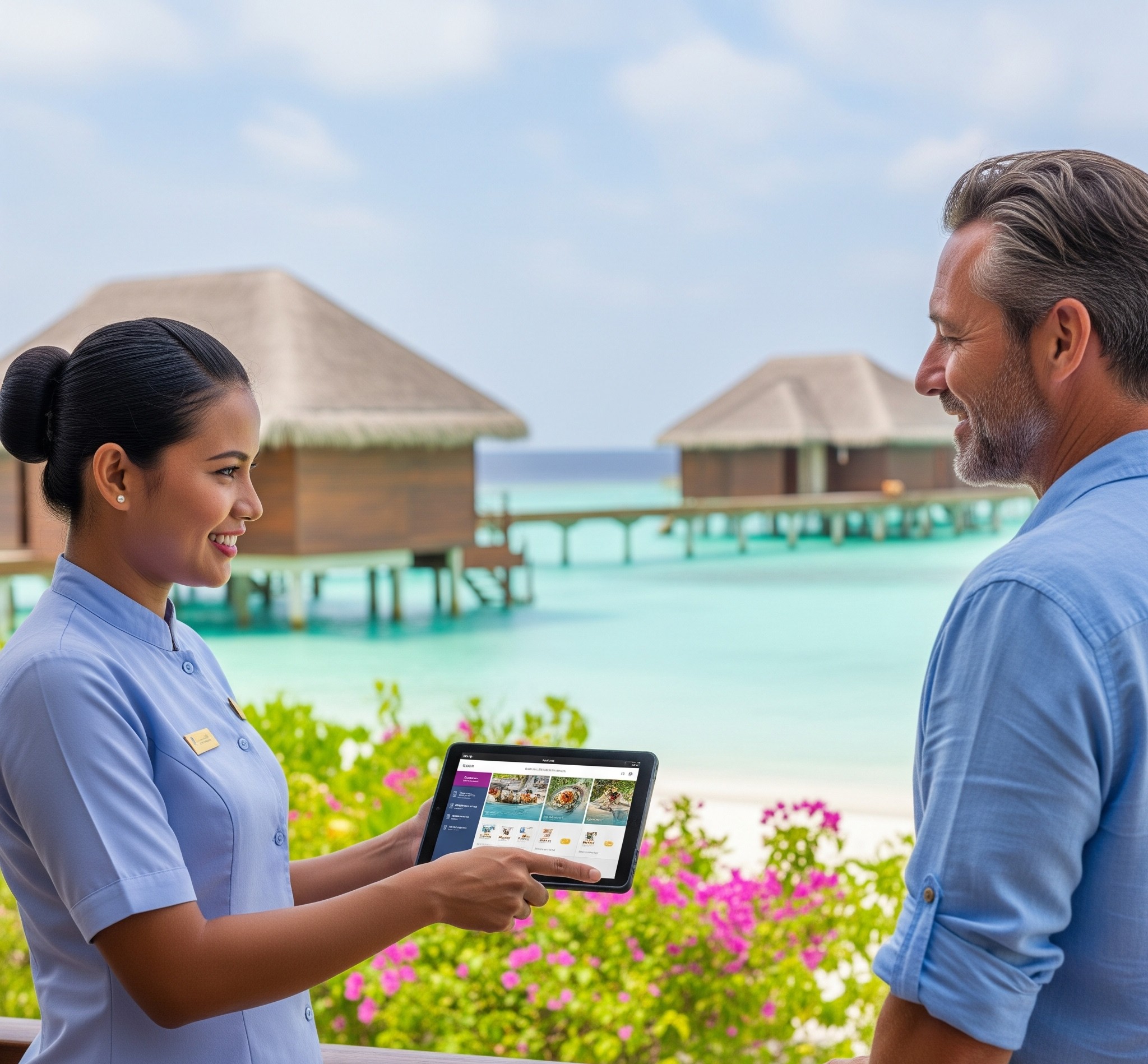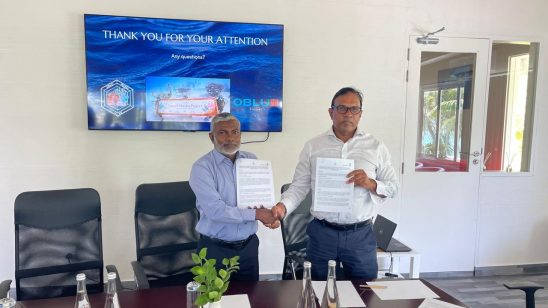
Going paperless: Why Maldives resorts should embrace digital operations
The Maldives is globally celebrated for its turquoise waters, luxurious resorts, and pristine natural environment. But behind the scenes of this idyllic paradise, many resorts are embracing a shift toward paperless operations — while others remain reliant on outdated, paper-heavy processes that are costly, inefficient, and environmentally unsustainable. As the hospitality industry evolves, going paperless is no longer just a technological upgrade — it’s a strategic necessity.
For resorts in the Maldives, transitioning to digital systems offers compelling operational, financial, and environmental advantages. From front office to finance, housekeeping to HR, a paperless operation enhances productivity, improves guest service, and supports sustainability goals — a core value already embraced by many, though not yet all, in the Maldivian hospitality sector.
Here’s why and how Maldives resorts should embrace the paperless transformation.
Why Go Paperless?
1. Sustainability and Brand Alignment
Many resorts in the Maldives already position themselves as eco-conscious or carbon-neutral destinations. Yet behind the scenes, stacks of printed reports, menus, checklists, and HR files tell another story. By reducing or eliminating paper use, resorts can align their internal practices with their external sustainability messaging — enhancing credibility and appeal to environmentally aware travelers.
2. Operational Efficiency
Paper slows things down. Lost forms, duplicate entries, and manual filing create inefficiencies across departments. Digital solutions — from inventory apps to guest check-in tablets — enable real-time data access, faster workflows, and better accountability. In island environments where logistics are already complex, reducing friction in operations is a game changer.
3. Cost Savings
Printers, toners, paper deliveries via boat, physical storage, and document shredding all add up. Going paperless reduces these direct costs and also minimises indirect costs tied to manual labour, human error, and time wastage.
4. Data Security and Compliance
Digital systems offer enhanced data backup, access controls, and audit trails, making them safer than physical files prone to damage, loss, or unauthorised access. For resorts managing sensitive guest data, employee records, and financial documents, this is a major benefit.

How to Go Paperless in a Maldives Resort
Going paperless doesn’t mean going entirely digital overnight. It’s a phased transition requiring the right tools, training, and mindset. Here’s a step-by-step approach tailored to the Maldives resort context:
1. Start with a Paper Audit
Begin by identifying where and how paper is used across departments:
-
Guest registration and check-in forms
-
Daily reports and shift logs
-
Procurement and purchase orders
-
Maintenance and housekeeping checklists
-
Printed menus and room directories
-
HR onboarding documents
This helps prioritise which processes can be digitised first for maximum impact.
2. Implement Property Management System (PMS) Integration
Many resorts already use PMS platforms like Opera, Protel, or Cloudbeds. Maximise their potential by enabling digital check-ins, mobile guest folios, e-signatures, and cloud-based reporting. These systems reduce paper while improving guest experience.
3. Digitalise Housekeeping and Maintenance
Use mobile apps to manage room cleaning schedules, maintenance tickets, and minibar inventories. Apps like Flexkeeping or Hotelkit allow teams to report, update, and close tasks in real-time — eliminating the need for printed lists and manual logs.
4. Switch to E-Procurement and Inventory Systems
Digitise purchasing, approvals, and stock control. E-procurement tools reduce paperwork and provide audit-friendly trails, while inventory apps offer real-time updates on stock levels and reduce overordering.
5. Go Digital with HR and Finance
Adopt HR software for onboarding, leave management, and payroll. Use digital expense reports, scanned invoices, and cloud-based accounting tools. Many resorts have already started using solutions like Xero, QuickBooks, or Microsoft Dynamics — take it further by eliminating paper from the entire workflow.
6. Replace Printed Menus and Guest Directories
Use QR codes, digital tablets, or resort apps to present F&B menus, spa brochures, excursion schedules, and in-room guides. It not only saves paper but allows for instant updates and multilingual content, improving the guest experience.
7. Train Staff and Update SOPs
Digital adoption is only successful with buy-in from your team. Provide training sessions, update standard operating procedures (SOPs), and appoint “digital champions” in each department to support adoption.
8. Monitor Progress and Celebrate Wins
Track reductions in paper usage, printing costs, and time savings. Share these achievements with your team and guests — include metrics in your sustainability reports and social media content to show your commitment to responsible tourism.
Real-World Example: Resort Going Paperless
Several luxury resorts in the Maldives have already taken steps toward paperless operations. At some, guests now check in via tablet, daily departmental briefings are conducted through internal apps, and QR code menus are the new standard. These resorts report not only lower operational costs, but higher guest satisfaction scores, especially among younger and eco-conscious travelers.
The Bottom Line: Paperless is the Future
Going paperless is not just a tech upgrade — it’s a shift in mindset. For resorts in the Maldives, this shift supports sustainability, efficiency, guest satisfaction, and bottom-line results. As guests increasingly seek eco-friendly experiences and businesses look to optimise, a paperless operation becomes a hallmark of modern resort management.
The Maldives tourism industry prides itself on being world-class. It’s time our operations reflect that — digitally, responsibly, and efficiently.






